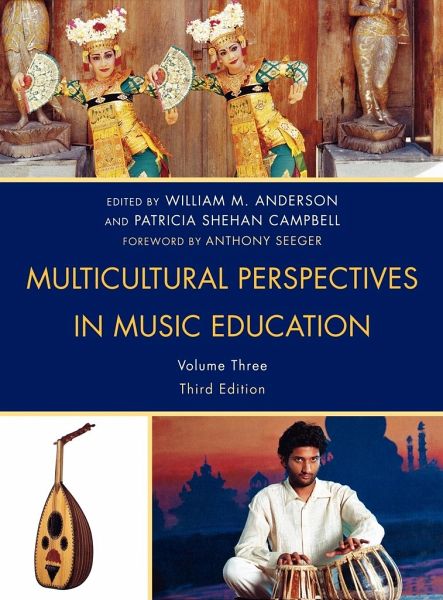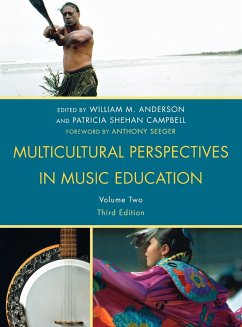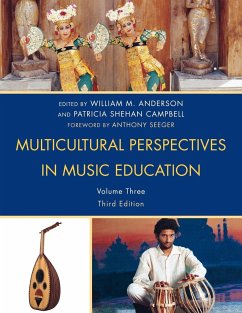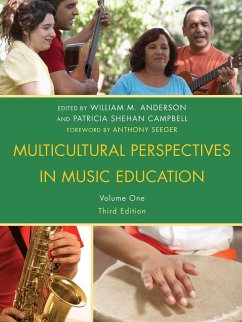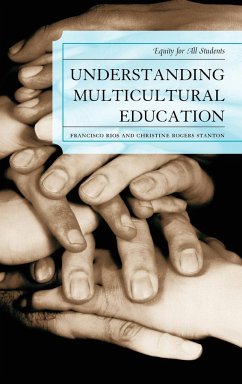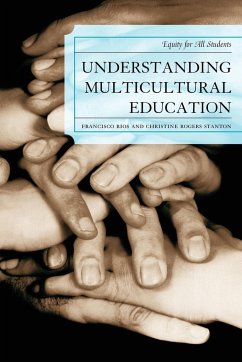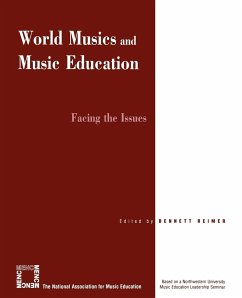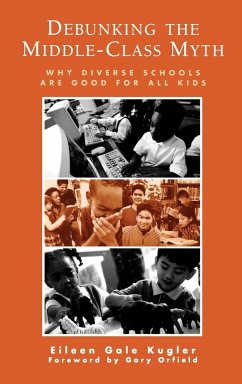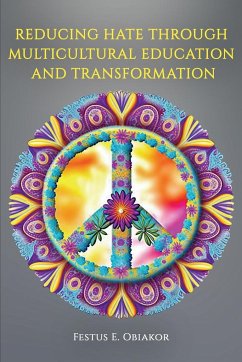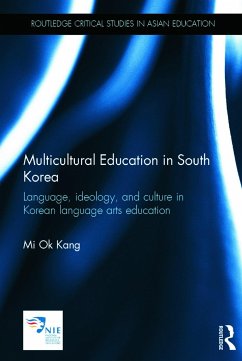Gebundenes Buch
Multicultural Perspectives in Music Education
Versandkostenfrei!
Versandfertig in 1-2 Wochen
Weitere Ausgaben:

PAYBACK Punkte
83 °P sammeln!





Broadly based and practically oriented, the book will help you develop curriculum for an increasingly multicultural society. The authors-a variety of music educators and ethnomusicologists-provide plans and resources to broaden your students' perspectives on music as an important aspect of culture both within the United States and globally.
William M. Anderson is professor emeritus and founding director, Center for the Study of World Musics, at Kent State University. Patricia Shehan Campbell is Donald E. Peterson Professor of Music at the University of Washington, where she teaches courses at the interface of music education and ethnomusicology.
Produktdetails
- Verlag: R&L Education
- Third Edition
- Seitenzahl: 220
- Erscheinungstermin: 16. Januar 2011
- Englisch
- Abmessung: 286mm x 221mm x 17mm
- Gewicht: 825g
- ISBN-13: 9781607095453
- ISBN-10: 1607095459
- Artikelnr.: 27430897
Herstellerkennzeichnung
Libri GmbH
Europaallee 1
36244 Bad Hersfeld
gpsr@libri.de
The new third edition of Multicultural Perspectives in Music Education is bursting with information and practical, hands-on strategies you can use in your general, choral and instrumental classes. Who could ask for more distinguished authors? From William M. Anderson and Patricia Shehan Campbell on down the list, you have the best knowledge/classroom-based writers in our field. These volumes provide the help you need to face that challenging new cultural mix in your school. They won't collect dust on your shelf. -- Will Schmid, past president, MENC: The National Association for Music Education These ambitious volumes are made by and for practical-minded educators. Accomplished, marquee-name leaders in culturally inclusive music education
Mehr anzeigen
join with rising young stars of the field to craft a cornucopia of multicultural resources. Written in plain language and with authority born of on-the-ground classroom experience, chapter after chapter guides us into a unique cultural territory, introducing values, aesthetic principles, and structures that generate and shape musical expression. In each case, a treasure trove of get-it-done lessons is our reward. In their "Introduction," editors William M. Anderson and Patricia Shehan Campbell empower us to eliminate barriers and blind spots that hinder crosscultural learning and to open our minds to different ways of comprehending and teaching musical knowledge. More than ever, this third and expanded edition delivers on the promise of its title: Multicultural Perspectives in Music Education. -- Dan Sheehy, director, Smithsonian Global Sound Keeping beat with the increasingly diverse population of the United States and the explosion of internet content, the greatly expanded third edition of Multicultural Perspectives in Music Education covers more cultures, contains more standards-based, hands-on lesson plans, and offers more resources than ever. The newly amplified chapter on African American music and new chapters on jazz/rock and world-beat are all brimming with inspiring material, bringing these rich traditions to life. As studentsexperience the rhythms, sounds, and stories of the global community, they will learn how these musics have influenced both American culture and world cultures. Students may develop a deeper understanding of their own heritage, and see how they fit into the global community. This is especially important for young people who may be alienated due to ethnic or cultural differences as well as students who may feel lost amid the growing population in today's urban areas in our technological age. Pat Campbell,Bill Anderson and their colleagues have created a flavorful melting pot of exciting musical and cultural nourishment that will inspire students of all demographic and social groups. Multicultural Perspectives in Music Education is not only a must-h -- Willie L. Hill Jr., chair, MENC Society for Jazz Education As multicultural music education has expanded and deepened in the past two decades, so also has the scope of this book. Now appearing in its third edition as a three-volume set, there are new chapters on jazz and rock and world beat, additional contributions from noted scholars and teachers, and a foreword by renowned ethnomusicologist Anthony Seeger. The book is unique in its combination of excellent cultural information and perspectives, comprehensive annotated sources, and creative lesson plans designed to engage students in rich, multicultural music experiences. William M. Anderson and Patricia Shehan Campbell are to be congratulated on the twentieth anniversary edition of this invaluable, time-honored source for music educators. -- Marie McCarthy, chair of music education, School of Music, Theatre and Dance, University of Michigan Keeping beat with the increasingly diverse population of the United States and the explosion of internet content, the greatly expanded third edition of Multicultural Perspectives in Music Education covers more cultures, contains more standards-based, hands-on lesson plans, and offers more resources than ever. The newly amplified chapter on African American music and new chapters on jazz/rock and world-beat are all brimming with inspiring material, bringing these rich traditions to life. As students experience the rhythms, sounds, and stories of the global community, they will learn how these musics have influenced both American culture and world cultures. Students may develop a deeper understanding of their own heritage, and see how they fit into the global community. This is especially important for young people who may be alienated due to ethnic or cultural differences as well as students who may feel lost amid the growing population in today's urban areas in our technological age. Pat Campbell, Bill Anderson and their colleagues have created a flavorful melting pot of exciting musical and cultural nourishment that will inspire students of all demographic and social groups. Multicultural Perspectives in Music Education is not only a must-have resource for all music education classrooms; it represents must-learn concepts for young people in every community and learning environment. -- Willie L. Hill Jr., chair, MENC Society for Jazz Education
Schließen
Für dieses Produkt wurde noch keine Bewertung abgegeben. Wir würden uns sehr freuen, wenn du die erste Bewertung schreibst!
Eine Bewertung schreiben
Eine Bewertung schreiben
Andere Kunden interessierten sich für




